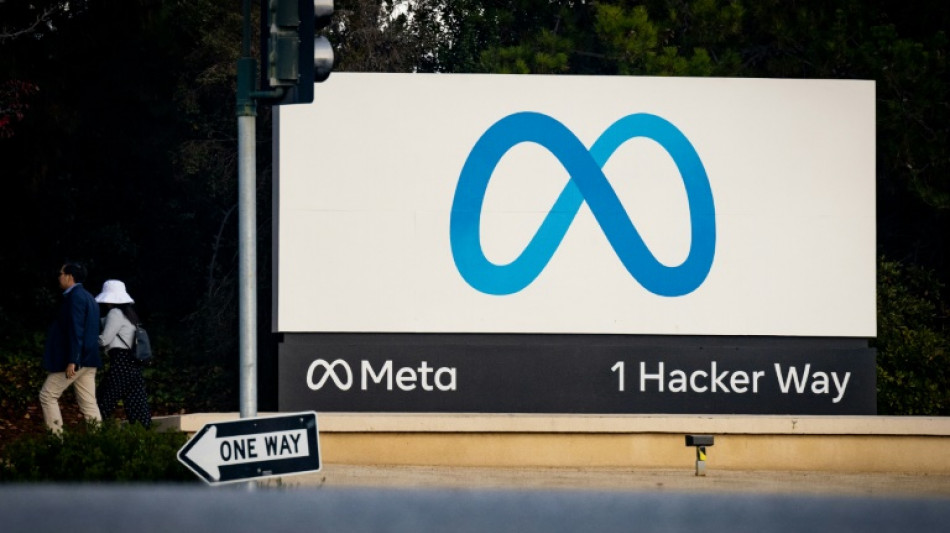
-
 Leftist Mamdani begins first day as New York mayor
Leftist Mamdani begins first day as New York mayor
-
Dozens believed killed in fire at Swiss ski resort New Year party

-
 Brazil Supreme Court rejects Bolsonaro request for house arrest on health concerns
Brazil Supreme Court rejects Bolsonaro request for house arrest on health concerns
-
Israel confirms ban on 37 NGOs in Gaza

-
 Russia blames Ukraine for deadly New Year drone strike
Russia blames Ukraine for deadly New Year drone strike
-
Coach Maresca leaves Chelsea - club

-
 'Several dozen' believed killed in fire at Swiss ski resort New Year party
'Several dozen' believed killed in fire at Swiss ski resort New Year party
-
China's BYD logs record EV sales in 2025

-
 Yemen separatists say Saudi-backed forces to deploy in seized territories
Yemen separatists say Saudi-backed forces to deploy in seized territories
-
Wales rugby star Rees-Zammit signs long-term deal to stay at Bristol

-
 'Several dozen' believed killed in fire at Swiss ski resort New Year bash
'Several dozen' believed killed in fire at Swiss ski resort New Year bash
-
Hakimi, Salah and Osimhen head star-packed AFCON last-16 cast

-
 Israel says it 'will enforce' ban on 37 NGOs in Gaza
Israel says it 'will enforce' ban on 37 NGOs in Gaza
-
Near record number of small boat migrants reach UK in 2025

-
 Several dead as fire ravages bar in Swiss ski resort town Crans Montana: police
Several dead as fire ravages bar in Swiss ski resort town Crans Montana: police
-
Tsitsipas considered quitting tennis during injury-hit 2025

-
 Sabalenka wants 'Battle of the Sexes' rematch and revenge
Sabalenka wants 'Battle of the Sexes' rematch and revenge
-
Osaka drawing inspiration from family at United Cup

-
 Leftist Mamdani takes over as New York mayor under Trump shadow
Leftist Mamdani takes over as New York mayor under Trump shadow
-
Israel's Netanyahu among partygoers at Trump's New Year's Eve fete

-
 Champagnie, Wemby lead Spurs comeback in Knicks thriller
Champagnie, Wemby lead Spurs comeback in Knicks thriller
-
Eight dead in US strikes on alleged drug boats: US military

-
 Trump joins criticism of Clooney's French passport
Trump joins criticism of Clooney's French passport
-
AI, chips boom sent South Korea exports soaring in 2025

-
 Taiwan's president vows to defend sovereignty after China drills
Taiwan's president vows to defend sovereignty after China drills
-
N. Korea's Kim hails 'invincible alliance' with Russia in New Year's letter

-
 In Venezuela, price of US dollar up 479 percent in a year
In Venezuela, price of US dollar up 479 percent in a year
-
Cummins, Hazlewood in spin-heavy Australia squad for T20 World Cup

-
 Ex-boxing champ Joshua discharged from hospital after fatal car crash
Ex-boxing champ Joshua discharged from hospital after fatal car crash
-
Kamenar to Open for Tom Hamilton of Aerosmith's New Band Close Enemies at the World-Famous Whisky a Go Go - January 3, 2026

-
 SUPCASE Unveils Its 2026 Brand Evolution: Lighter in Form, Stronger in Purpose
SUPCASE Unveils Its 2026 Brand Evolution: Lighter in Form, Stronger in Purpose
-
The EPOMAKER RT82: Where Retro Meets Modern Technology

-
 Zelensky says deal to end war '10 percent' away
Zelensky says deal to end war '10 percent' away
-
Trump bashes Clooney after actor becomes French

-
 We are '10 percent' away from peace, Zelensky tells Ukrainians
We are '10 percent' away from peace, Zelensky tells Ukrainians
-
Trump says pulling National Guard from three cities -- for now

-
 Ivory Coast top AFCON group ahead of Cameroon, Algeria win again
Ivory Coast top AFCON group ahead of Cameroon, Algeria win again
-
World welcomes 2026 after a year of Trump, truces and turmoil

-
 Ivory Coast fight back to pip Cameroon for top spot in AFCON group
Ivory Coast fight back to pip Cameroon for top spot in AFCON group
-
Second Patriots player facing assault charge

-
 Trump-hosted Kennedy Center awards gala ratings plummet
Trump-hosted Kennedy Center awards gala ratings plummet
-
Israel begins demolishing 25 buildings in West Bank camp

-
 Cambodian soldiers freed by Thailand receive hero's welcome
Cambodian soldiers freed by Thailand receive hero's welcome
-
Sudan lose to Burkina Faso as Algeria win again at Cup of Nations

-
 Man City's Rodri and Doku could return against Sunderland
Man City's Rodri and Doku could return against Sunderland
-
French minister criticises Clooney's 'double standard' passport

-
 Ukrainians wish for peace in 2026 -- and no more power cuts
Ukrainians wish for peace in 2026 -- and no more power cuts
-
Glasner coy over Palace pursuit of Spurs striker Johnson

-
 Neville labels Man Utd's draw with Wolves 'baddest of the bad'
Neville labels Man Utd's draw with Wolves 'baddest of the bad'
-
Stocks pull lower at end of record year for markets

| SCS | 0.12% | 16.14 | $ | |
| JRI | 0.22% | 13.61 | $ | |
| BCC | -0.26% | 73.6 | $ | |
| NGG | -0.54% | 77.35 | $ | |
| RBGPF | -0.37% | 80.75 | $ | |
| RELX | -1.71% | 40.42 | $ | |
| CMSD | 0.09% | 23.15 | $ | |
| CMSC | -0.15% | 22.65 | $ | |
| BCE | 1.05% | 23.82 | $ | |
| RIO | -0.61% | 80.03 | $ | |
| RYCEF | 0.13% | 15.51 | $ | |
| AZN | -0.63% | 91.93 | $ | |
| GSK | -0.53% | 49.04 | $ | |
| BTI | 0.12% | 56.62 | $ | |
| BP | -0.06% | 34.73 | $ | |
| VOD | -0.15% | 13.21 | $ |

Facebook's algorithm doesn't alter people's beliefs: research
Do social media echo chambers deepen political polarization, or simply reflect existing social divisions?
A landmark research project that investigated Facebook around the 2020 US presidential election published its first results Thursday, finding that, contrary to assumption, the platform's often criticized content-ranking algorithm doesn't shape users' beliefs.
The work is the product of a collaboration between Meta -- the parent company of Facebook and Instagram -- and a group of academics from US universities who were given broad access to internal company data, and signed up tens of thousands of users for experiments.
The academic team wrote four papers examining the role of the social media giant in American democracy, which were published in the scientific journals Science and Nature.
Overall, the algorithm was found to be "extremely influential in people's on-platform experiences," said project leaders Talia Stroud of the University of Texas at Austin and Joshua Tucker, of New York University.
In other words, it heavily impacted what the users saw, and how much they used the platforms.
"But we also know that changing the algorithm for even a few months isn't likely to change people's political attitudes," they said, as measured by users' answers on surveys after they took part in three-month-long experiments that altered how they received content.
The authors acknowledged this conclusion might be because the changes weren't in place for long enough to make an impact, given that the United States has been growing more polarized for decades.
Nevertheless, "these findings challenge popular narratives blaming social media echo chambers for the problems of contemporary American democracy," wrote the authors of one of the papers, published in Nature.
- 'No silver bullet' -
Facebook's algorithm, which uses machine-learning to decide which posts rise to the top of users' feeds based on their interests, has been accused of giving rise to "filter bubbles" and enabling the spread of misinformation.
Researchers recruited around 40,000 volunteers via invitations placed on their Facebook and Instagram feeds, and designed an experiment where one group was exposed to the normal algorithm, while the other saw posts listed from newest to oldest.
Facebook originally used a reverse chronological system and some observers have suggested that switching back to it will reduce social media's harmful effects.
The team found that users in the chronological feed group spent around half the amount of time on Facebook and Instagram compared to the algorithm group.
On Facebook, those in the chronological group saw more content from moderate friends, as well as more sources with ideologically mixed audiences.
But the chronological feed also increased the amount of political and untrustworthy content seen by users.
Despite the differences, the changes did not cause detectable changes in measured political attitudes.
"The findings suggest that chronological feed is no silver bullet for issues such as political polarization," said coauthor Jennifer Pan of Stanford.
- Meta welcomes findings -
In a second paper in Science, the same team researched the impact of reshared content, which constitutes more than a quarter of content that Facebook users see.
Suppressing reshares has been suggested as a means to control harmful viral content.
The team ran a controlled experiment in which a group of Facebook users saw no changes to their feeds, while another group had reshared content removed.
Removing reshares reduced the proportion of political content seen, resulting in reduced political knowledge -- but again did not impact downstream political attitudes or behaviors.
A third paper, in Nature, probed the impact of content from "like-minded" users, pages, and groups in their feeds, which the researchers found constituted a majority of what the entire population of active adult Facebook users see in the US.
But in an experiment involving over 23,000 Facebook users, suppressing like-minded content once more had no impact on ideological extremity or belief in false claims.
A fourth paper, in Science, did however confirm extreme "ideological segregation" on Facebook, with politically conservative users more siloed in their news sources than liberals.
What's more, 97 percent of political news URLs on Facebook rated as false by Meta's third-party fact checking program -- which AFP is part of -- were seen by more conservatives than liberals.
Meta welcomed the overall findings.
They "add to a growing body of research showing there is little evidence that social media causes harmful... polarization or has any meaningful impact on key political attitudes, beliefs or behaviors," said Nick Clegg, the company's president of global affairs.
O.M.Souza--AMWN

